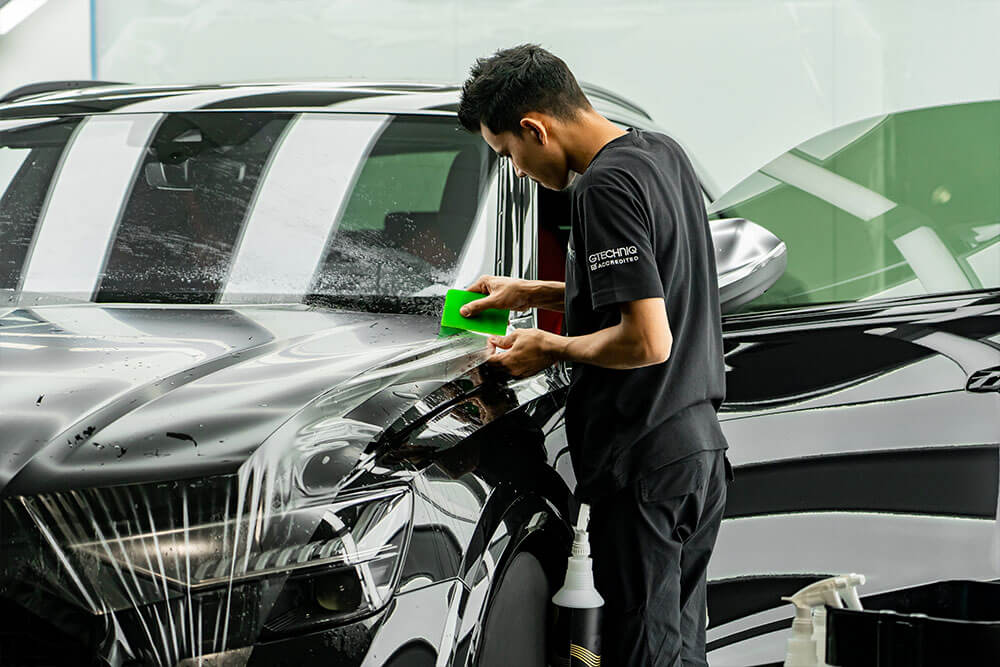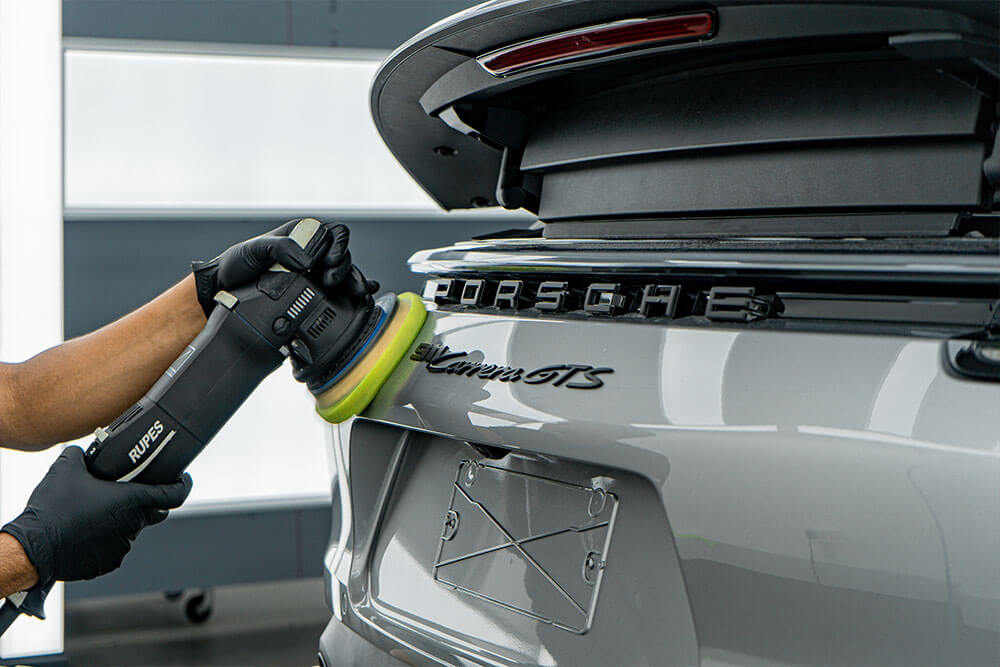
PPF offers a transparent layer of protection that helps maintain your car’s finish, shielding it from scratches, chips, and even harmful UV rays. While it is a beneficial addition to your vehicle, the UAE has specific rules regarding how and where PPF can be applied. These regulations ensure road safety and maintain the aesthetics of vehicles across the country. Ignoring these guidelines could lead to fines, removal orders, or even vehicle impoundment.
Restrictions on PPF Application in the UAE
The UAE authorities have clearly defined rules about how PPF can be used on vehicles. Here are the essential points to consider:
- Adherence to the Original Colour: PPF must not alter the original colour of the car. If the film you choose is transparent and merely adds a layer of protection without changing the paint’s appearance, it is generally acceptable. However, tinted or coloured films that alter the shade of the car are not permitted unless specific permissions are obtained. The regulations aim to maintain a standard look for all vehicles, ensuring uniformity and compliance with local customs.
- Visibility of License Plate and Lights: The authorities prioritise safety, and any modification that could hinder visibility or recognition of the vehicle is prohibited. Make sure that your PPF application does not interfere with these critical parts of your car.
- Legal Permissions for Design Modifications: If you wish to install decorative PPF that features patterns or textures, you may need to seek special permission. The regulations are designed to prevent vehicles from adopting overly distracting or non-conformist designs that could compromise road safety or draw undue attention. Always check with the relevant authorities or a professional service provider before choosing PPF with custom designs.
Ensuring Compliance: Steps to Follow
To ensure your PPF installation complies with UAE regulations, follow these practical steps:
- Consult Certified PPF Installers: Opt for professional services that are certified and familiar with the local regulations. They can guide you on the permissible types of films and ensure that the installation is done legally. Certified installers stay updated on any changes in the regulations and help avoid any mistakes that could lead to fines.
- Check for Necessary Approvals: If you are considering PPF that might be seen as non-standard (e.g., tinted or decorative films), seek clarification from the Road and Transport Authority (RTA) or relevant local authorities. Obtaining approvals beforehand will save you from the hassle of possible penalties or forced removal later on.
- Retain Documentation and Proof: Keep a record of your PPF purchase and installation, especially if the film has received special permissions. This documentation serves as evidence of compliance and can be shown to authorities if needed. It is always better to have everything documented for clarity and peace of mind.
Choosing the Right PPF for Your Car
Selecting a high-quality PPF is not just about adherence to regulations but also about choosing the best protection for your car. Ensure that the PPF is transparent, UV-resistant, and durable. Some films are designed with advanced self-healing properties, which can repair minor scratches when exposed to heat. Such features add value without risking legal complications, as they do not alter the vehicle’s colour or visibility.
Conclusion: A Thoughtful Approach to PPF Installation
While PPF offers valuable protection for your vehicle, it is essential to stay within the bounds of UAE regulations. Always seek advice from certified installers and clarify any doubts with local authorities. By taking a thoughtful approach, you can maintain your car’s pristine appearance while driving confidently on the roads of the UAE.


